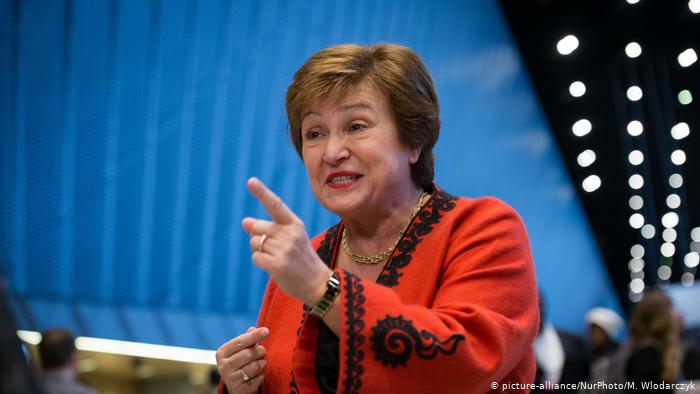The International Monetary Fund has expressed worry about the high exposure of banks to government securities that is Treasury bills and bonds, saying it is increasing the balance sheet risks of the banks.
In its detail Article IV Consultation on Ghana, the Fund said the situation is also crowding out private sector lending.
“Government lending supported the banking sector through the pandemic, but is crowding out private-sector credit and increasing balance sheet risks”.
This is also coming at a time when Fitch Ratings reviewed the outlook of two Nigerian banks operating in Ghana, from stable to negative because they are highly exposed to Government of Ghana's securities, though it assigned its ‘B’ ratings.
The IMF further said that the share of government lending to total bank assets reached 44.7% in February 2021, from 36.3% a year before, driven by the large budget deficit, and the pandemic-induced credit risks and slowdown in credit demand.
“This growing sovereign exposure, a trend that started even before the pandemic, props up bank profitability but undermines private-sector credit growth. Moreover, the exposure could create bank balance sheet losses if government yields were to increase, amplifying the impact of potential debt rollover difficulties or other exogenous shocks on credit growth and economic activity”, it pointed out.
Meanwhile, the Bank of Ghana is pushing ahead with regulatory reform.
According to the IMF, the Central Bank is drafting Pillar II regulations and completing accompanying risk management guidelines.
It is also conducting a review of the Specialised Deposits-Taking Institutions subsector with technical support from the World Bank, to identify gaps in the legal, regulatory, and supervisory framework and the practices that led to systemic distress and resolution of over 400 failed SDIs in 2019.
The Bank of Ghana has also recently revised the Emergency Liquidity Assistance framework and is finalizing new directives, including on liquidity management, supervisory review and evaluation process, and corporate governance disclosure under its ongoing Basel II/III reforms.
The IMF finally called for the sustainment and enhancement of implementation of the Anti-Money Laundering/CFT framework that helped Ghana exit the FATF “grey list” in June 2021.
Latest Stories
-
Colour Cure Exhibition highlights art’s role in healing and advocacy
12 seconds -
GPL 2024/25: Aduana FC sack coach Yaw Acheampong after poor run
3 mins -
John Dumelo pays ¢10,400 in outstanding fees for visually impaired law student facing deferral
4 mins -
CHRAJ clears Victor Kusi Boateng over allegations of 2 passports, Cathedral cash theft
8 mins -
We’ll restore hope by cutting down taxes and avoiding unreasonable borrowing – Ato Forson
12 mins -
14th Edition of Tech in Ghana Conference launched in Accra
13 mins -
Manifesto clash: NPP, NDC spar over water, hygiene, sanitation and climate change
19 mins -
Ellembelle MP constructs new health facility at Santaso to serve several communities
23 mins -
Kwasi Appiah wanted to axe Ayew brothers and Wakaso from Black Stars – Ernest Thompson reveals
31 mins -
AngloGold Ashanti empowers PWDs in Obuasi East to harness 10-year socio-economic development plan
34 mins -
‘Dumsor’ won’t go anytime soon, we need 2 years to stabilize- IES
40 mins -
Black Stars Management Committee does a good job – Ernest Thompson
42 mins -
GFA set to launch Girls for Goals campaign in Keta
45 mins -
Siisi Baidoo wins Male Vocalist at 2024 Praise Achievement Awards
50 mins -
Perez Musik celebrates marriage with breathtaking photos
1 hour

